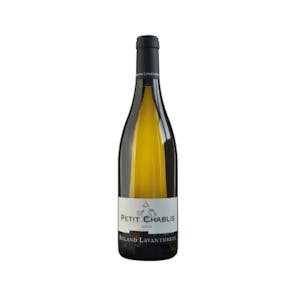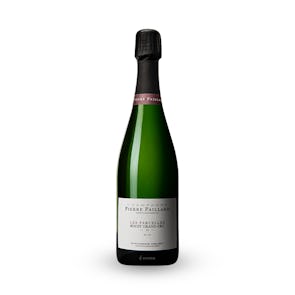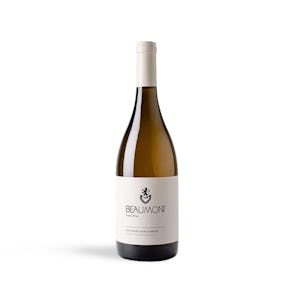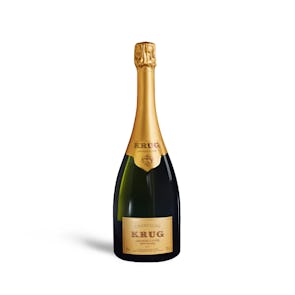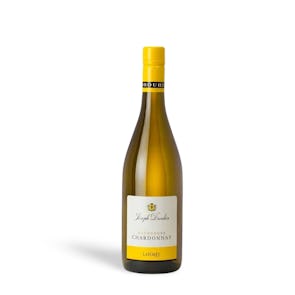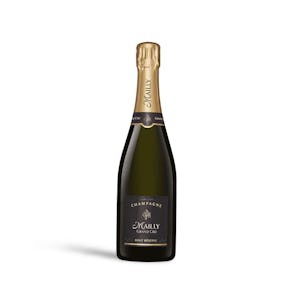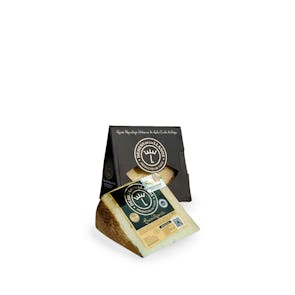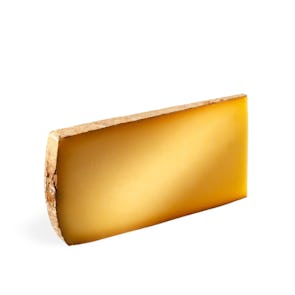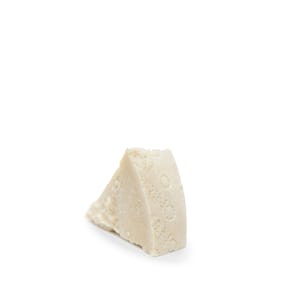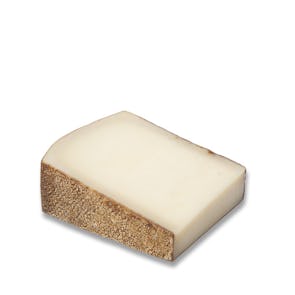



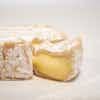
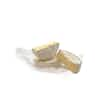
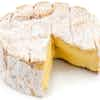
Les 5 Frères Farmhouse Camembert from Normandie
Exceptional Camembert
(Tuesday Mar 03 , 2026)
TASTING NOTES FROM THE CURATOR
Usually sold in round wooden boxes, Camembert is easy to identify because of the white, downy mold on its rind. It is aged at least four weeks, after a brining period that ensures only the correct mold grows along the exterior. This cheese’s runny pâté is a light yellow in color, with an intense smell that calls to mind the aromas of the valley its raw milk comes from. It has, at its heart, a faint saltiness as it ripens, right under the taste of rich butter and foraged mushrooms. It has a rounded aftertaste with a pleasant tang and soft finish.
PREPARATION OR PAIRINGS
Camembert is a familiar presence on cheese boards, most often the star soft-rind cheese set alongside one or two blues and an array of hard and semi-hard cheeses. Add some fresh and dried fruit, toasted baguette slices, and flavorful nuts to complete your presentation. To further impress your guests, serve your board with Normandy apple cider or Calvados, the traditional partners for Camembert cheese.
If apple-based alcoholic drinks are not to your taste, Camembert pairs well with a wide variety of drinks. Wine drinkers will enjoy its earthy flavor with crisp Riesling, Sauvignon Blanc, and spicy Gewürztraminer, as well as fruity Pinot Noirs, Merlots, or equally earthy Châteauneuf-du-Pape. Of course, a Cava or fruit-forward Champagne will do just as nicely. Beer folk will enjoy Camembert with IPAs and Saisons, as well as Czech pilsners. And for those who enjoy a good whiskey, rye is the way to go. That, or a single malt scotch.
A TRADITION THAT BUILDS ON ITSELF
The history and tradition of this cheese go back to the French Revolution at the end of the 18th century. A clergyman from the region of Brie de Meaux went into hiding in the village of Camembert, Orne, and came to be assisted by dairymaid and cheesemaker Marie Harel. He gave her the recipe for Brie cheese and, with her own twists and modifications, the Camembert de Normandie was born.
THE STORY OF LES 5 FRÈRES FARMHOUSE CAMEMBERT
Les 5 Frères Farmhouse Camembert is a testament to tradition and family dedication. The farm is located in Bermonville, in the Seine-Maritime department, halfway between Rouen and Le Havre. Although this Camembert does not have the “Camembert de Normandie AOP” designation, its production adheres strictly to the specifications of the appellation.
The five brothers, Charles, Pierre, Victor, Côme, and Martin, took over the family farm, which their parents had run for milk production without transforming it. The absence of Camembert producers in the Seine-Maritime region for several years led to its exclusion from the AOP zone. However, the Bréant brothers have revived Camembert production in this area, with hopes of rejoining the AOP soon.
Their Camembert features a lovely white, fine bloomy rind that can turn slightly yellow with red pigments as it ages. Its ivory-colored pâté is smooth and supple when fully ripened. When semi-ripened, the heart has a white, chalky core. The flavor profile reveals a fruity cheese with a slight butter taste.
At Les 5 Frères, everything is made at the farm and handcrafted. The brothers produce the only farmhouse Camembert made from raw milk in the Seine-Maritime region, maintaining the highest standards of quality and tradition. Their dedication to their craft ensures that each cheese is a true representation of their family’s commitment to excellence and the preservation of their heritage.
Storage Instructions
Cheeses (except brined ones in jars) should be stored in the crisper or the butter drawer of a refrigerator, not on the shelves themselves. This is to help regulate their temperature and humidity levels—and prevents the formation of mold. Once opened, they should not be kept in their original packaging. Soft cheeses with delicate rinds need to breathe, so they are best placed in glass containers lined with paper towels to absorb extra moisture. Leave the lid open a tiny bit for air to circulate and don’t forget to write up a label with the date you first opened the package. Your cheese will be fine for up to one month. Cheeses are air-flown from France on demand. They are meant to be consumed within 1 to 2 weeks of their arrival at your residence.

